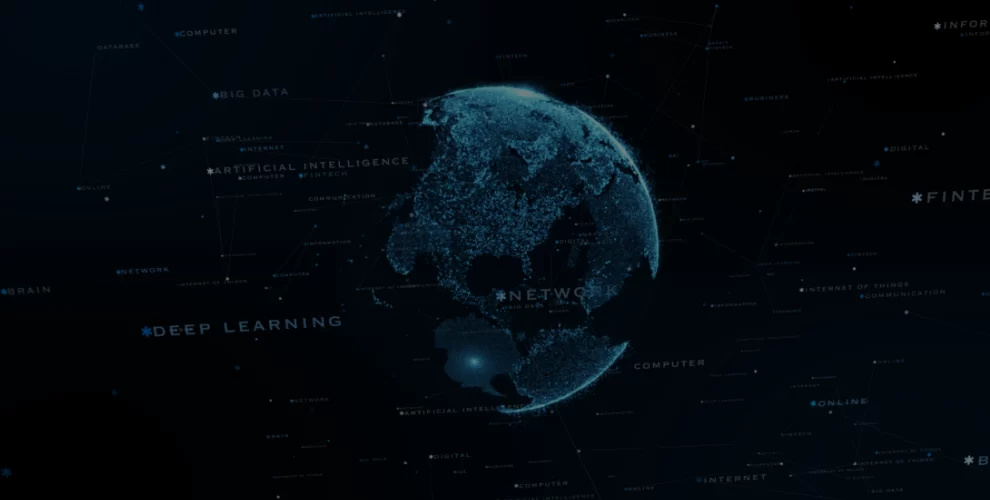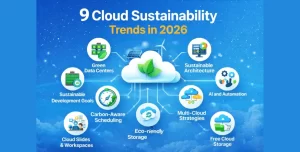
Why Technology and Sustainability are Inseparable in the Age of AI
Table of Contents
Introduction
Welcome to WikiGlitz! As we progress into the age of artificial intelligence (AI), the integration of technology and sustainability becomes increasingly crucial.
AI has the potential to drive significant advancements in environmental, economic, and social sustainability. In this blog, we will explore why technology and sustainability are inseparable and how AI-powered solutions are transforming the world for a sustainable future.
Key Takeaways
- AI enhances sustainability efforts by providing innovative solutions to environmental challenges.
- The synergy between technology and sustainability is essential for achieving long-term ecological balance and resource efficiency.
- AI-driven sustainable practices promote social equity, economic growth, and environmental conservation.
Understanding Sustainability in the Age of AI
Definition of Sustainability
Sustainability refers to the ability to maintain ecological balance by avoiding the depletion of natural resources.
It encompasses environmental protection, social equity, and economic viability, ensuring that current and future generations can thrive.
How AI Influences Sustainability Efforts
AI technologies can process vast amounts of data, identify patterns, and make predictions, enabling more efficient and effective solutions to sustainability challenges.
By leveraging AI, we can optimize resource use, reduce waste, and mitigate environmental impacts.
AI-Powered Solutions for Environmental Challenges
Climate Change Prediction and Mitigation
AI models can predict climate patterns and extreme weather events, enabling proactive measures to mitigate their impacts.
AI also helps in developing strategies for reducing greenhouse gas emissions.
Renewable Energy Optimization
AI optimizes the production and distribution of renewable energy sources like solar and wind power.
By predicting energy demand and adjusting supply, AI ensures efficient energy use and reduces reliance on fossil fuels.
Resource Management and Conservation
AI monitors and manages natural resources, such as water and forests, ensuring their sustainable use.
AI-driven systems can track resource consumption, identify inefficiencies, and suggest conservation measures.
Sustainable Practices in AI Development
Energy-Efficient AI Algorithms
Developing AI algorithms that require less computational power can significantly reduce energy consumption.
Researchers are focusing on creating more efficient models to minimize the environmental footprint of AI.
Eco-Friendly Data Centers
Data centers that power AI applications consume vast amounts of energy.
Implementing sustainable practices, such as using renewable energy and optimizing cooling systems, can make data centers more eco-friendly.
Sustainable Manufacturing of AI Hardware
The production of AI hardware, including chips and sensors, should follow sustainable practices.
This includes using recyclable materials, reducing waste, and ensuring fair labor practices.
AI in Sustainable Urban Development
Smart Cities and Infrastructure
AI contributes to the development of smart cities, where data and technology are used to enhance urban living.
Smart cities employ AI for efficient energy use, traffic management, and public services.
AI in Public Transportation Systems
AI optimizes public transportation by analyzing traffic patterns and predicting demand.
This leads to reduced congestion, lower emissions, and improved urban mobility.
Waste Management and Pollution Control
AI-powered waste management systems can sort and recycle waste more effectively, reducing landfill use.
AI also monitors pollution levels and suggests measures to improve air and water quality.
AI in Agriculture and Food Security
Precision Farming Techniques
AI enables precision farming, where data on soil conditions, weather, and crop health is used to optimize agricultural practices.
This leads to higher yields, reduced resource use, and sustainable farming.
Monitoring Crop Health and Soil Quality
AI-powered drones and sensors monitor crop health and soil quality, providing real-time data to farmers.
This helps in early detection of diseases and pests, ensuring timely interventions.
Reducing Food Waste Through AI
AI can predict food demand and optimize supply chains, reducing food waste.
AI systems also help in monitoring food storage conditions, preventing spoilage.
AI in Water Management
Predictive Analytics for Water Usage
AI predicts water demand and usage patterns, helping in efficient water distribution and conservation.
This is crucial in managing water resources, especially in areas facing water scarcity.
Monitoring and Managing Water Resources
AI systems monitor water quality and availability, ensuring sustainable use.
They can also detect leaks and inefficiencies in water infrastructure.
Addressing Water Scarcity with AI
AI-driven solutions help in identifying and implementing measures to address water scarcity.
This includes optimizing irrigation systems and promoting water-saving practices.
Social Implications of AI and Sustainability
Promoting Social Equity with AI
AI can bridge gaps in access to resources and opportunities, promoting social equity.
AI-driven platforms provide educational and healthcare services to underserved communities.
Ethical Considerations in AI Deployment
Ensuring ethical AI deployment involves addressing biases, protecting privacy, and ensuring transparency.
Ethical AI practices are essential for building trust and promoting fairness.
Ensuring Inclusive Access to AI Technologies
Making AI technologies accessible to all, regardless of socioeconomic status, is crucial for inclusive development.
This involves reducing the digital divide and promoting digital literacy.
Case Studies and Real-World Applications
Successful Integration of AI in Sustainable Projects
- Google’s AI for Environmental Protection: Google uses AI to monitor deforestation and track wildlife populations, contributing to conservation efforts.
- IBM’s Project: IBM uses AI to optimize renewable energy production in China.
Lessons Learned from Real-World Examples
Real-world examples highlight the potential of AI in driving sustainability and offer valuable lessons on implementing AI-driven solutions effectively.
Conclusion
WikiGlitz has brought you this comprehensive guide on why technology and sustainability are inseparable in the age of AI. By leveraging AI technologies, we can address environmental challenges, promote social equity, and drive economic growth.
Embrace AI-driven sustainable practices to create a greener, more equitable future. Together, we can harness the power of technology for a sustainable world.
FAQs
How does AI contribute to sustainability?
AI optimizes resource use, reduces waste, and provides innovative solutions to environmental challenges, contributing to sustainability.
What are some examples of AI-powered sustainable solutions?
Examples include AI in precision farming, renewable energy optimization, smart city development, and waste management.
How can we ensure AI development is environmentally friendly?
By developing energy-efficient AI algorithms, using eco-friendly data centers, and following sustainable manufacturing practices for AI hardware.
What are the ethical considerations in using AI for sustainability?
Ethical considerations include addressing biases, protecting privacy, ensuring transparency, and promoting fairness in AI deployment.
How can AI be made accessible to all for promoting sustainability?
Ensuring inclusive access involves reducing the digital divide, promoting digital literacy, and making AI technologies affordable and available to all.
Want to keep up with our blog?
Our most valuable tips right inside your inbox, once per month.
Error: Contact form not found.
WikiGlitz Team
Welcome to WikiGlitz, your ultimate destination for tech insights and innovation. Our expert team is dedicated to delivering free resources and professional advice on various technology topics, including Artificial Intelligence, Cyber Security, Cloud Computing, and more. We strive to empower our readers with up-to-date information and practical guidance, ensuring you stay ahead in the rapidly evolving tech landscape. At WikiGlitz, we are passionate about making complex technology accessible to everyone. Our team of seasoned experts curates content that is both informative and engaging, helping you understand and leverage the latest tech trends. Whether you're a tech enthusiast or a professional, WikiGlitz is your go-to source for reliable, expert-driven content. Join us on this journey to explore and embrace the future of technology.





